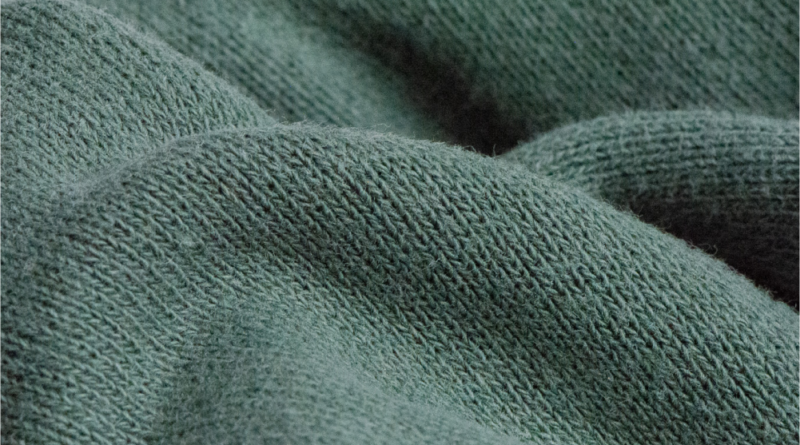Step-by-Step Guide to De-Pilling Your Garments
Pilling – or fabric pills- are little balls of fibre that appear on the surface of your garments. Our clothing faces a lot of friction from rubbing against each other or other surfaces (like our skin). As a result, the fibres within the garment break down or become loose, and then get entangled with each other, forming pills or “bobbles”.
Pilling not only takes a toll on the longevity of the garment but also hampers its appearance and vibrancy. You may have noticed that after only a few wears and washes, your once vibrant cotton sweater doesn’t look and feel as good as the day you bought it. Well, unfortunately, pilling may be the reason behind it.
Is pilling a sign of bad quality?
Unlike what you may have heard, pilling is not a sign of bad quality. It is a natural fabric fault that’s bound to appear after some time. Factors such as friction, washing and drying processes, and fabric composition, have a direct impact on fabric pilling.
To stay on the safe side, it’s best to choose fabrics with higher staple lengths as they have a lesser tendency to pill quickly.
How to remove pilling from clothes at home?
There are many ways to remove pills from your clothes at home. Some are more effective than others, but the right choice depends on your fabric’s type, composition, and the intensity of pilling.
Use a fabric shaver
A fabric shaver is a power-packed device that cuts off pills from the garment using a rotating blade. It’s generally very effective but can be tough on delicate fabrics due to the risk of tearing.
Simply lay the garment flat on a clean surface and ensure that it doesn’t have any wrinkles or creases. Turn the shaver on and start moving it over the areas with pilling. It’s recommended to use gentle pressure to avoid damaging the textile. Once the pilling is removed, clean the shaver thoroughly and store it in a neat, dry place.
Before using a fabric shaver, it’s best to test it on an inconspicuous area first. If there are no signs of damage, or tearing, you can use it on the overall fabric.
While a fabric shaver is a handy pill remover, it is not a good choice for removing fuzz and lint from your clothing. Moreover, if not used with caution, it can create uneven wear in the clothing.
Use a fabric care detergent
A fabric care detergent is a good choice for people who want to remove pilling in the washing machine. For a busy parent or someone who works around the clock, sparing time for clothing depilling sessions can be a nuisance. In this case, using BIORESTORE Re-Tergent makes perfect sense.

Make a pile of your cotton garments with lint or pilling and add them to the washer. Then, add the right quantity of BIORESTORE cotton pill remover by checking the instructions mentioned on the packaging. Once done, run a cycle at 40ºC for 2 hours. Toss the garments in a tumble drier and tadow! All lint and pilling will be gone.
While this method is surely one of the best and most sustainable ways to remove pilling from fabrics, keep in mind that this can be done for clothing with at least 70% cotton composition.
Use a razor
If you are cash-strapped or need an affordable pill remover that works well on knitted clothing, a razor can be a good choice. Sweaters, sweatshirts, or blankets, especially the ones made of wool, cashmere, polyester, and acrylic, all can be depilled with a razor. However, just like using a fabric shaver, you need to stay extra cautious during the process.
Lie the garment on a plain surface and ensure that there are no wrinkles. Taking the razor, shave using quick and short strokes. You can either use a disposable razor or a safety razor (depending on your choice and convenience). For garments with intense pilling, repeat the process till the fabric is thoroughly clean. Once done, use a lint roller to collect all of the removed fuzz from the fabric.
Keep in mind that while a razor is a great pill remover, you should not use it too often as that can weaken the textile over time.
Tips for Preventing Fabric Pills
Turn your garments inside out
During the washing process, clothes face a lot of friction from rubbing against each other and the centrifugal force of the machine. This can result in excessive wear, leading to fabric pilling and bobbling.
To avoid this, always turn your clothes inside out before tossing them in the washing machine. This way, you can prevent fabric pills from appearing on the visible side of the garment.
Use the right detergent
Heavy-duty detergents are typically packed with a lot of harmful ingredients such as surfactants, phosphates, and in some cases, fragrances as well. While they certainly do a good job of removing stains, odours, and soiling from the fabric, they can also cause excessive wear, which ultimately results in fuzz and pills.
Opt for a mild fabric care detergent, one that’s good for both the environment and your clothing. A great tip is to look for words like “non-toxic”, “biodegradable”, “allergen-free”, “bleach-free”, “phosphate-free”, and “phthalate-free” while shopping for laundry powder.

